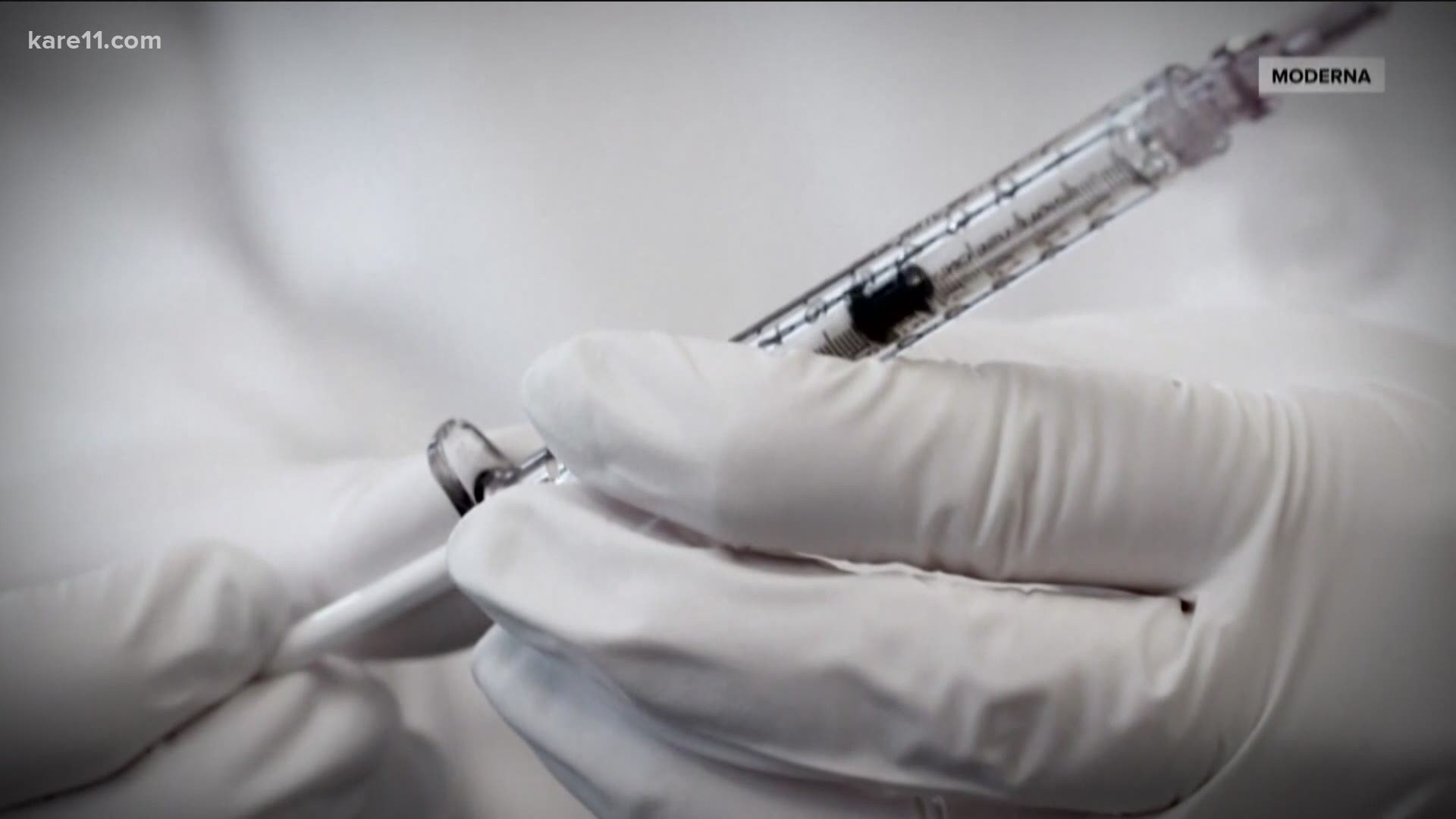Minnesota Department of Health employees were front and center Wednesday at a Senate hearing about Tuesday's bumpy rollout of a new vaccination program for teachers and for those over the age of 65.
Officials set up 10,000 appointments even though many people say they got error messages or their calls didn't connect. Information technology officials say they are working to improve the process that continues again next Tuesday.
"We wanted to get some experience with this and what role it might play in the future as more vaccine becomes available," said MDH Commissioner Jan Malcolm. She said she doesn't expect to receive additional vaccine in the immediate future. Currently, the federal government is sending Minnesota between 60,000 and 65,000 doses a week.
The "Health and Human Services Committee" Chair, Sen. Michelle Benson, also acknowledged the limited number of doses, but said teachers should now be a priority.
"I feel like we're a little scattershot on the education rollout," said Sen. Benson. "I would be supportive of anything being allocated to education being focused on those schools that have been in distance learning for the longest period of time so those teachers feel the most comfortable going back to work."
MDH says the number of doses are spread out across the state's nine education regions based on how many teachers there are in each. The selected educators and child care workers who are receiving a vaccine will be notified by their employer.
Several pharmacists also testified at the hearing, saying they're ready now to start vaccinating people to speed up the process. But they all said they're still waiting to hear from state officials to get the "go ahead".
They argue most of the nearly 600 pharmacies in Minnesota already have the infrastructure to store the vaccine and can administer it. Plus, a majority of their clients are eligible for the vaccine in the next group of people 65 and older.
A pharmacist at NuCara Pharmacy in Paynesville, west of St. Cloud, says it also helps he has long-standing, trusting relationships with people in the small town.
"We're also, and I feel this is very important, well equipped to deal with patients who are not adept at using the latest technology," said Lee Landsteiner. "We'll make that appointment for them when they tell us they don't have a computer."
Lee says, if there were enough doses right now his pharmacy could vaccinate 300 people every week.
"We’re here, we’re ready to help," said Landsteiner. "We went into this profession to provide patient care - please allow us to be that resource."
The state is relying on Walgreens and CVS pharmacies as part of a federal program to vaccinate people in nursing homes and long-term care facilities.

